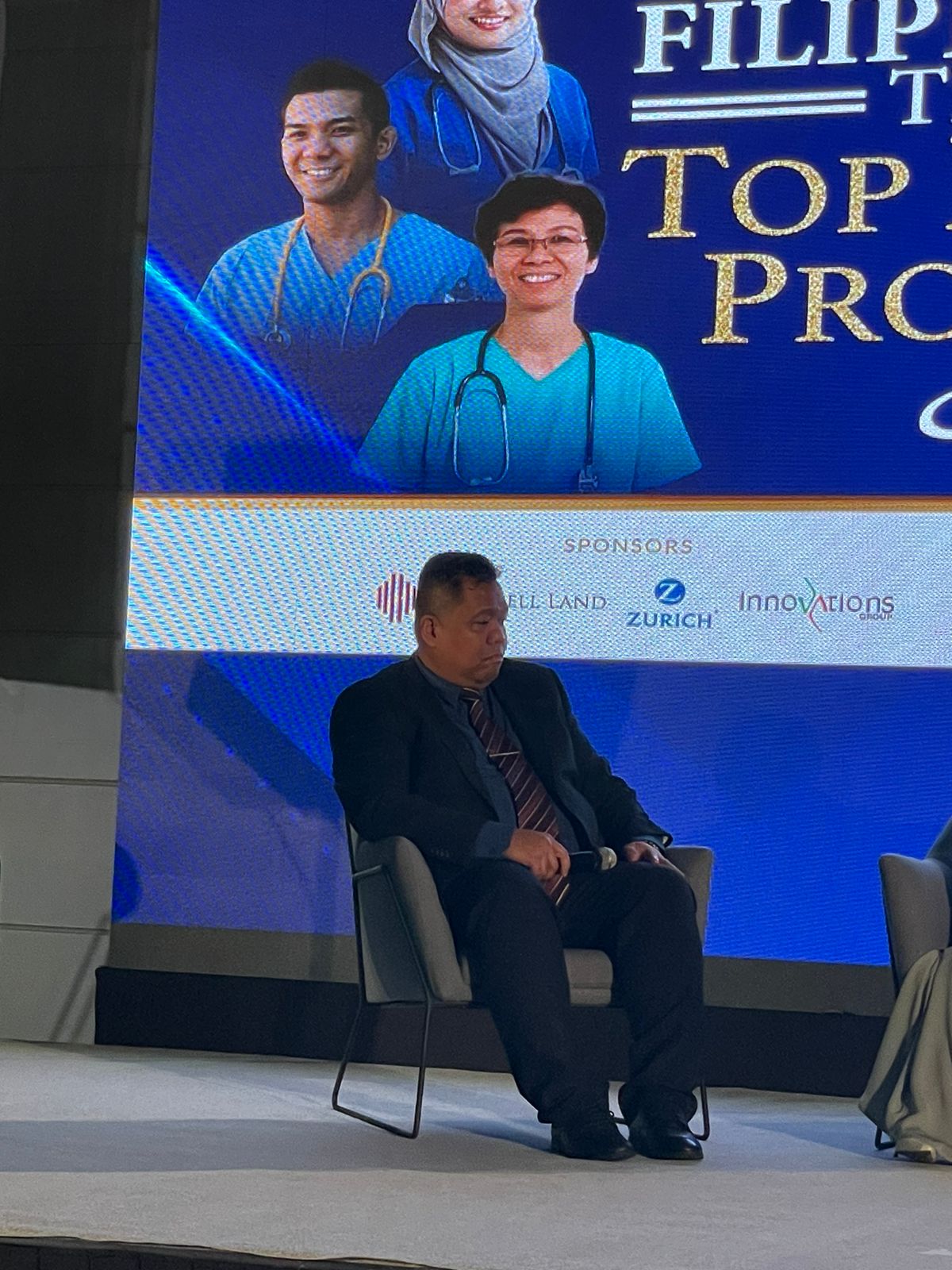The global healthcare landscape has been fundamentally reshaped by the COVID-19 pandemic, ushering in an era of rapid technological integration and a critical re-evaluation of healthcare delivery systems on a global scale.
The profound shifts were at the forefront of discussions during the recent “The Filipino Times Watchlist: Top Filipino Healthcare Professionals in the Middle East Summit” held on September 23.
Distinguished speakers at the summit included Dr. Jose Puno Villanueva, Specialist in Occupational Medicine at Etihad Airways; Houda Alhajri, Group Quality Director at Burjeel Holdings; and Michael Siladan, Operations Manager at MedAssist, Emirates Airlines, and President of the Philippine Professional Healthcare Association- UAE.
They shared invaluable insights into how the pandemic has compelled organizations to recognize the pivotal role technology has played in this transformation.
Alhajri emphasized that the pandemic necessitated a paradigm shift towards technology adoption and standardization across multiple regions within the country.
“The need to change our strategy and manage patients’ health during the pandemic, especially in infection control practices, led to an enhancement of services in the healthcare sector,” she remarked.

She further noted the significant shift towards technology adoption, even among those accustomed to manual processes. This automation of processes has become common across a majority of healthcare centers, yielding positive outcomes.

Alhajri also highlighted the introduction and widespread adoption of virtual or telemedicine consultations, initially underutilized but now a cornerstone of healthcare delivery. With the involvement of regulatory bodies, these teleconsultations have been refined to meet stringent requirements.
On the other hand, Villanueva shed light on the rigorous risk assessments undertaken and operational improvements made in response to the pandemic-induced challenges.
“Our revenue significantly declined, forcing us to understand our operational requirements better and tailor our mitigation strategies accordingly,” Villanueva explained.

“Precision in recommendations and cost-effectiveness were essential, following the principle of ‘as low as reasonably practicable,” he added.
For his part, Siladan delved into the enduring popularity of telehealth consultations, especially for patients who still harbor fears of in-person visits.
“While telehealth can be costly, it offers improved access to healthcare services. However, it’s crucial to ensure the reliability of medical records and recommendations,” Siladan said, stressing the importance of balancing technology with in-person care when necessary.

The summit, organized by the New Perspective Media Group, brought together distinguished figures from the healthcare industry alongside UAE government officials.
The event, held at the Bristol Hotel in Dubai, UAE, provided a platform for these healthcare leaders to exchange ideas and insights that will undoubtedly shape the future of healthcare delivery in the Middle East.
As the global healthcare landscape continues to evolve, the contributions of Filipino healthcare professionals exemplify the adaptability and innovation required to navigate these transformative times. Their collective efforts illuminate a path forward toward a more resilient and technologically integrated healthcare system.




